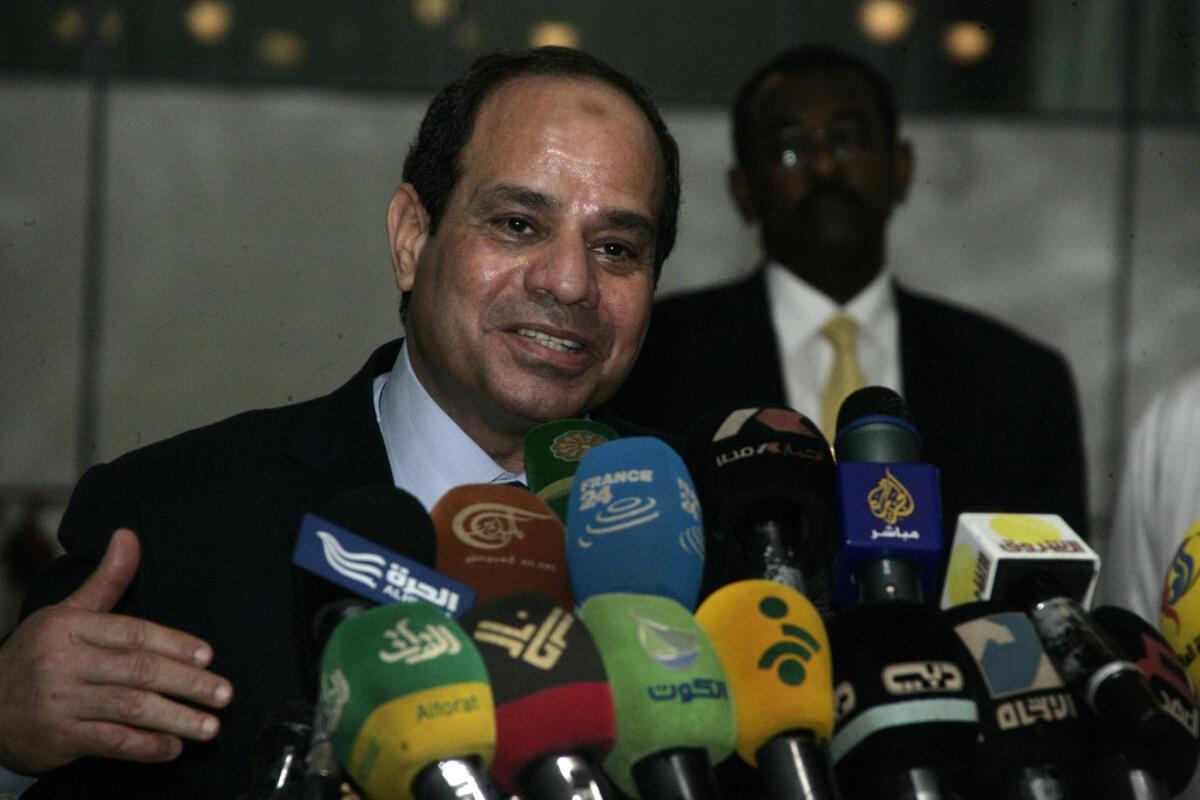Egypt authorities likely committed crimes against humanity, group says

- Share via
Reporting from Cairo — A leading international human rights group asserted Tuesday that Egyptian authorities likely committed crimes against humanity in the deaths of hundreds of demonstrators last August, most of them supporters of deposed Islamist President Mohamed Morsi and his Muslim Brotherhood.
Egypt sharply disputed the findings of New York-based Human Rights Watch and barred senior representatives of the organization from entering the country to publicly present their report, which was based on a yearlong investigation.
The group urged that an international commission of inquiry be convened to investigate the “widespread and systematic” killings in Cairo’s Rabaa Al-Adawiya Square and several other locales. At least 817 people and possibly more than 1,000 were killed by security forces at Rabaa alone, Human Rights Watch said.
The document calls for an independent probe of the role of President Abdel Fattah Sisi, the then-military chief, and other senior military and security officials. It alleges that the security forces were essentially given carte blanche to use deadly force against protesters, and that the official plan for dealing with Morsi backers envisioned the likely deaths of several thousand demonstrators.
The violence erupted six weeks after the military removed Morsi from office after mass demonstrations demanding an end to his rule. Morsi, who is now on trial for a variety of capital offenses, was Egypt’s first freely elected president.
The Egyptian government conducted its own investigation of the deaths in mid-August of last year, when pro-Morsi sit-in camps were dispersed by police and soldiers. A government-backed human rights panel put the death toll at less than 700, and found – without implicating particular officials – that both sides had used excessive force.
Responding to Tuesday’s Human Rights Watch report, Egypt’s official State Information Service said the findings were characterized by “negativity and bias” and “ignored terrorist acts carried out by the Muslim Brotherhood and their supporters.”
In the year since the killings, Egyptian authorities have carried out a wide-ranging crackdown on the Muslim Brotherhood, the region’s oldest and largest Islamist movement, and curtailed a range of basic rights, including freedom of speech and assembly. The judiciary system has also rendered a series of harsh mass verdicts against alleged Brotherhood backers.
Many government opponents, both Islamist and secular, have been imprisoned under a tough anti-protest law. Academics, activists, filmmakers and journalists have faced prosecution for activities allegedly endangering national security, including three journalists from the Qatar-based broadcaster Al Jazeera English, who were sentenced earlier this summer to seven-year prison terms on terrorism-related charges.
More to Read
Sign up for Essential California
The most important California stories and recommendations in your inbox every morning.
You may occasionally receive promotional content from the Los Angeles Times.










